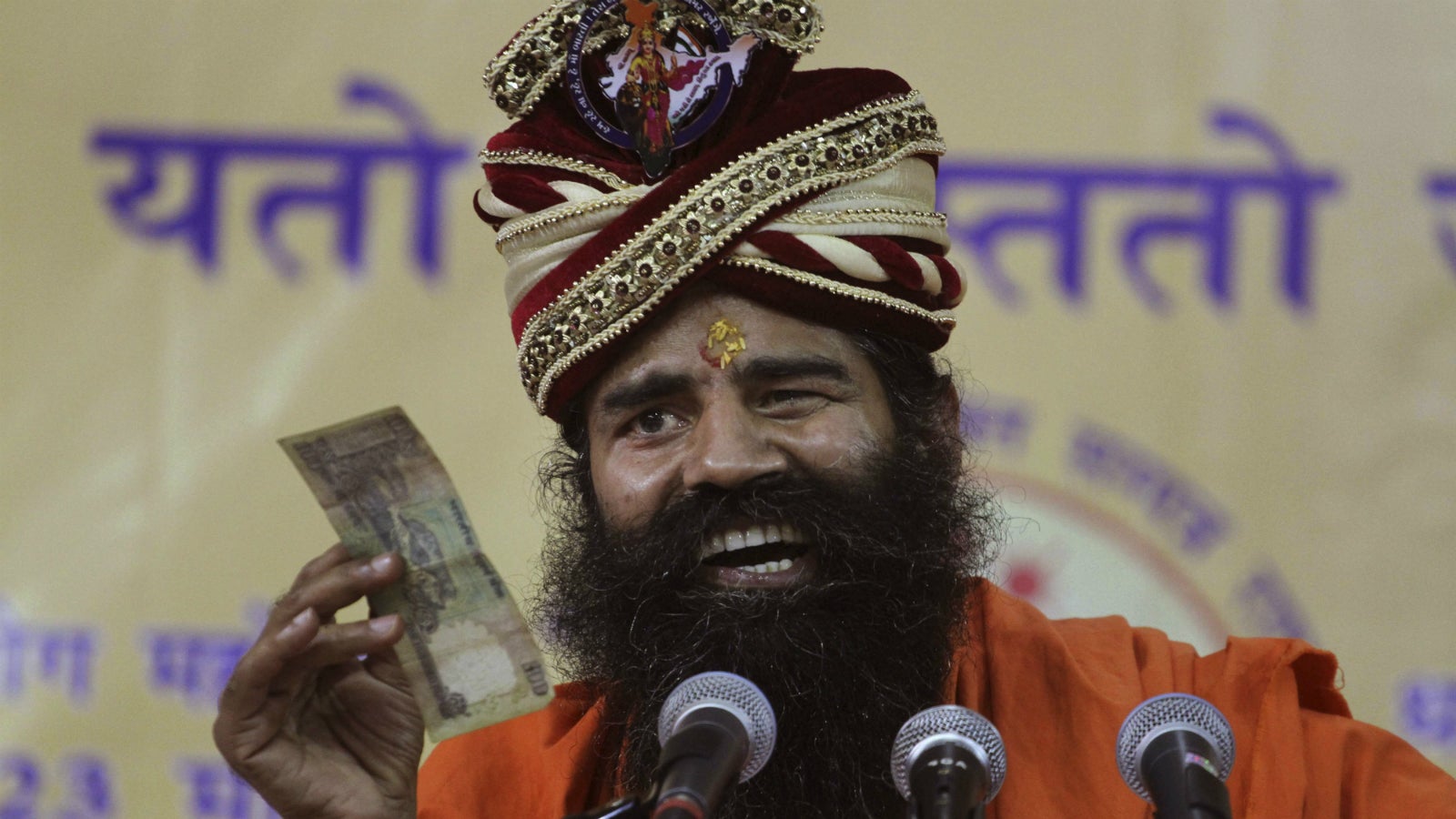An Indian yoga guru wants to sell $1.5 billion of soaps, shampoos and ghee this year
Yoga guru-turned-business maverick Ramdev is flexing his muscles to grab a bigger piece of India’s Rs3.2-trillion fast moving consumer goods pie.


Yoga guru-turned-business maverick Ramdev is flexing his muscles to grab a bigger piece of India’s Rs3.2-trillion fast moving consumer goods pie.
In recent projections, the Rs5,000-crore Patanjali Ayurved has sought to double its revenue to cross Rs10,000 crore (or $1.5 billion) by March 2017. The company sells Ayurvedic or herbal versions of soaps, shampoos, ghee, and face-wash, among others.
“We will invest Rs 1,000 crore to set up five to six processing units in various parts of the country. Besides, we will invest Rs150 crore in research & development,” Ramdev said on April 26. “We are looking at doubling our turnover to Rs10,000 crore in the current fiscal.”
The yoga exponent, who first burst forth on television screens across India in the early 2000s, showcasing quick ways to shed fat and improve immunity, is a household name in the country. Patanjali’s Ayurvedic products were launched in 2007.
Since then, their popularity has soared.
Over the last three years, Patanjali has gained clout through word-of-mouth publicity and advertisement blitzkriegs on prime time TV, kindling Indian consumers’ love for indigenous products.
“Patanjali’s differentiators lie in consumer trust in Ayurveda and in group founder—yoga guru Ramdev, its inherent product quality and lower product prices,” suggests an April 2016 report by brokerage firm Religare Securities.
His company’s products, marketed as chemical-free and inexpensive, directly compete with brands of large multi-nationals such as Hindustan Unilever and toothpaste-maker Colgate, besides domestic majors like Dabur and Emami.
Despite the brand’s claims, Patanjali’s products have been under the scanner for misleading consumers. Some media reports said they are actually manufactured by external vendors. Ramdev has dismissed such allegations as “politically motivated.”
The company doubled its revenue from Rs2,006 crore for the year ending March 31, 2015, to Rs5,000 crore for the year ended March 31, 2016. According to a January 22 report by financial services firm India Infoline, Patanjali’s revenues will further swell to Rs20,000 crore by 2020.
It now plans to launch a beauty-care range and kids’ wellness products. Development of an online sales channel is also in the works. Patanjali will invest millions of rupees on large food-parks that will help it scale procurement of raw materials such as essential herbs.
While the numbers and growth projection already seem overwhelming, the guru apparently has more tricks up his sleeve.
“This,” he told reporters in New Delhi, “is just the beginning.”